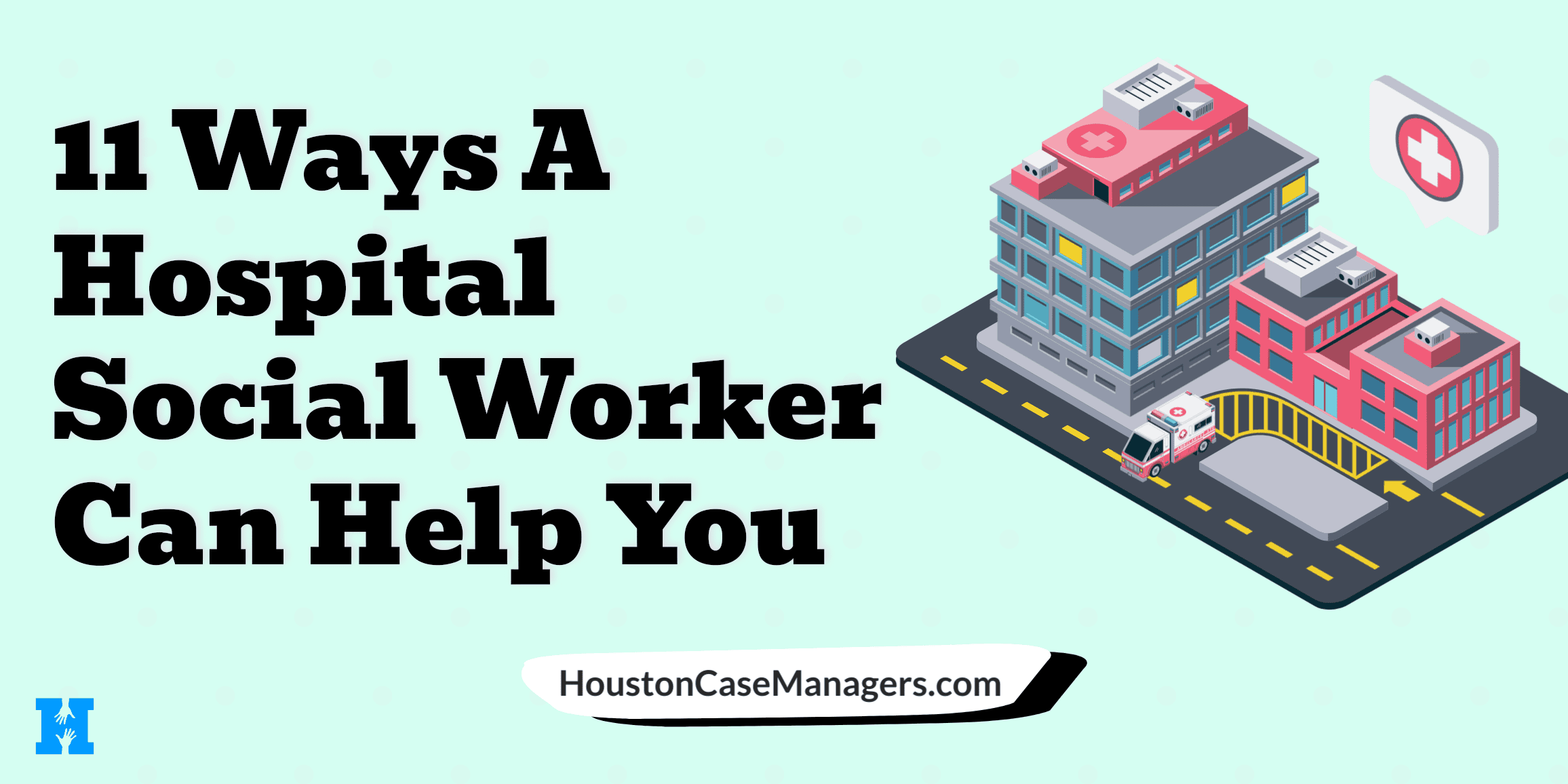11 Ways A Social Worker At A Hospital Can Help You
How can a social worker at a hospital help me?
This is a question on the minds of many patients and families who find themselves in a hospital setting.
Hospital social workers play a crucial role in providing comprehensive care to those in need. They are trained professionals who are dedicated to helping patients and their families navigate the often complex and overwhelming healthcare system.
In this article, we’ll explore the important role of hospital social workers and the many ways they can help you in your time of need. So, buckle up and get ready to learn about the secret weapon in the healthcare system that can make all the difference for you and your loved ones.
What Is A Hospital Social Worker?
A hospital social worker is a trained professional who offers support and assistance to patients and their families, providing emotional support and counseling to help cope with the challenges of a medical crisis.
Hospital social workers also act as advocates for patients, ensuring they receive the care and support they need in the healthcare system, and are experienced in navigating community resources to provide referrals and resources.
They play a vital role in the healthcare system, offering compassionate and supportive care to those in need. Essentially they are there to help ensure that you are taken care of inside the hospital and help you prepare for recovery once you are discharged home.
Why Would A Social Worker Talk To Me At A Hospital?
A social worker may talk to you at a hospital for a variety of reasons…
One of the primary roles of a hospital social worker is to provide emotional support and counseling to patients and their families during a medical crisis. They can also act as an advocate for you within the healthcare system, helping to ensure that you receive the care and support you need.
Social workers in a hospital setting may also assist with practical needs, such as finding safe housing or transportation and can provide referrals and resources for community services.
Ultimately, the goal of a hospital social worker is to provide comprehensive and compassionate support to help you and your family through a difficult time.
7 Questions You Can Ask A Hospital Social Worker
Below are questions you can ask your social worker in the hospital. The table will give you a better understanding of their role and some of the ways they can help you while you are hospitalized.
| Question | Description |
|---|---|
| How can you help me and my family during this medical crisis? | This question will help you understand the specific ways the social worker can provide support during your medical crisis. |
| What resources and services do you offer to help me navigate the healthcare system? | This question will help you understand the various resources and services available through the hospital social worker to help you navigate the healthcare system. |
| Can you help me understand my insurance coverage and the costs associated with my medical care? | This question will help you understand the social worker’s role in helping you understand your insurance coverage and the costs associated with your medical care. |
| Can you assist with finding resources for practical needs, such as housing and transportation? | This question will help you understand the social worker’s role in assisting with practical needs, such as housing and transportation. |
| Can you help me with advanced care planning and end-of-life decisions? | This question will help you understand the social worker’s role in helping with advanced care planning and end-of-life decisions. |
| Can you provide information on financial assistance programs for medical expenses? |
This question will help you understand the social worker’s role in providing information on financial assistance programs for medical expenses. |
| What services do you offer to help me with discharge planning and follow-up care? | This question will help you understand the services available to help with discharge planning and follow-up care. |
11 Ways A Hospital Social Worker Can Help You While Hospitalized
Below are 11 ways that you can get help from your social worker at the hospital. These are not the only ways that you can get help, but it is some of the most common ways that they can help you.
1.) Emotional Support and Counseling
Being hospitalized can be a stressful and worrying time. A hospital social worker can provide emotional support and counseling to patients and their families during a medical crisis.
They can listen, offer reassurance, and help you cope with the stress and anxiety that often come with a hospital stay. They are trained to provide compassionate care and can help you find the support you need to get through a difficult time.
2.) Financial and Insurance Concerns
Hospital social workers can assist with financial and insurance concerns, helping you understand the costs associated with your medical care and ensuring you receive the insurance coverage you need. They can help you find resources to cover medical expenses and can assist with navigating the financial aspects of a medical crisis.
3.) Navigating the Healthcare System and Advocating for Patients
Understanding the healthcare system can be confusing, but your hospital social worker can help you better understand the healthcare system and advocate for your rights and needs. They can help you understand your medical options, communicate with healthcare providers, and ensure that you receive the care you need. They can also help you understand your rights and can act as your advocate within the healthcare system.
4.) Advanced Care Planning and End-of-Life Decisions
Hospital social workers can assist with advanced care planning and end-of-life decisions, helping you and your family prepare for what lies ahead. They can provide information on medical options and can help you make informed decisions about your care. They can also provide emotional support to help you and your loved ones through this difficult time.
5.) Resources and Referrals for Community Services
Hospital social workers can provide resources and referrals for community services, including safe housing, transportation, and other support services. They are experienced in navigating community resources and can help you find the resources you need to support your well-being.
6.) Practical Needs, Such as Housing and Transportation
If you need help connecting to practical needs, such as finding safe housing and transportation, your hospital social worker may be able to help you. They can help you find resources to cover the costs of housing and transportation and can assist with finding safe and stable options during a medical crisis.
7.) Support for Families of Pediatric Patients
Hospital social workers can provide support for families of pediatric patients, helping them navigate the challenges and concerns that often come with caring for a child in the hospital.
They can provide emotional support, resources, and referrals to help families find the support they need.
Child Life Specialist Can Help Calm Children In The Hospital
A child life specialist is a professional who helps children and families cope with the challenges of hospitalization, illness, and injury. They work in pediatric healthcare settings to provide comfort, support, and education to children and their families.
Child life specialists use play, art, and other forms of expression to help children understand their medical experiences and cope with the stress and anxiety of hospitalization. They also provide age-appropriate education about medical procedures and treatments, helping children feel more prepared and less afraid.
In addition to helping children understand and cope with their medical experiences, child life specialists also provide support and resources to families, helping them navigate the challenges of hospitalization and care for their child. They work closely with healthcare teams to provide a comprehensive and compassionate approach to pediatric care.
If your child is ever hospitalized you are definitely encouraged to request a child life specialist, because they are really good at helping children and families through difficult times.
8.) Discharge Planning and Follow-Up Care
When getting ready to discharge you may have questions about how you will administer medicine or when your next follow-up visit with your doctor is. Hospital social workers can assist with discharge planning and follow-up care, helping you prepare for your transition from the hospital to your home or a care facility.
They can help you find resources for ongoing care and can ensure that you receive the support you need after your hospital stay.
9.) Support for Patients with Chronic Conditions
If you have a chronic condition they can help you in this regard also. Hospital social workers can provide support for patients with chronic conditions, helping them manage the challenges and concerns that often come with living with a chronic illness. They can provide resources and referrals for support services and can help you find the resources you need to manage your condition.
10.) Appeal A Medical Decision
Your social worker can also help you to file an appeal if you disagree with a medical decision by your doctor or the hospital. A social worker at the hospital can help you to understand your rights when it comes to appeals and even let you know what agency (Joint Commission, State Ombudsman, Medicare) you will need to speak to for an appeal.
11.) Support for Patients Facing Life-Limiting Conditions
Social workers in hospitals can assist patients dealing with life-threatening circumstances, guiding both the patients and their families as they prepare for the future. They offer emotional support, connections to resources, and referrals to aid individuals in finding the necessary support during this challenging period. Additionally, they can help with advanced care planning.
Conclusion
A social worker at a hospital can play a crucial role in providing comprehensive care to patients and their families during a medical crisis.
From providing emotional support and counseling to assisting with practical needs like housing and transportation to navigating the healthcare system, and advocating for the patient, social workers can offer a wide range of support services to help patients and their families through difficult times.
The 11 ways described in this article highlight just a few of the many ways a hospital social worker can help you. It is important to remember that a social worker is an important member of the healthcare team, working to provide comprehensive care and support to help you and your loved ones through a medical crisis.
If you are facing a medical crisis, I encourage you to seek the support of a hospital social worker. They can provide the help and guidance you need to navigate the challenges and concerns that often come with a hospital stay.
While I have not worked as a hospital social worker, I have worked as a case manager in community resources. If you have any questions regarding resources available to you or hospital members who can help you please let me know. I’ve worked in community health clinics for the past 13 years so I have a solid understanding of resources that may be available to you.
Similar Articles That May Interest You:
- How Hospital Discharge Works
- Hospital Admissions: What You Should Know About Being Admitted To The ER
- 17 Questions You Should Ask During A Hospital Discharge
Nick Bryant is the author of Understanding Healthcare Is Half The Battle and a Senior Counselor with 13+ years of experience working in community health and mental health. He enjoys spending time with his family, watching WWE on Friday nights, and working toward a Google Data Analytics certification. If you have additional questions about community resources or government assistance programs, simply leave a comment below and he will follow up as soon as possible.




